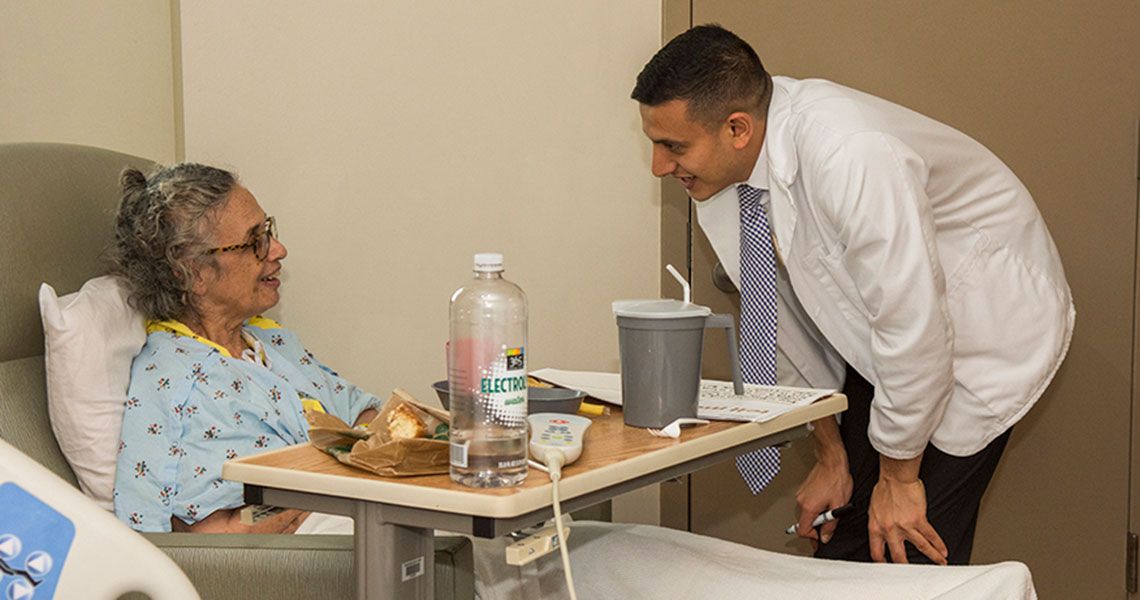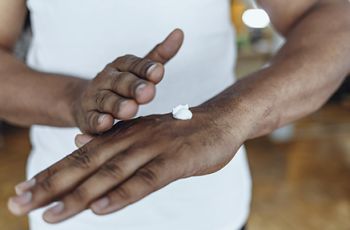During the Gold Humanism Honor Society (GHHS) Solidarity Week for Compassionate Patient Care, from Feb. 13-17, M.D. students from the GW School of Medicine and Health Sciences (SMHS) could be found at GW Hospital writing posters about the importance of humanism in medical care, learning about patients’ interests, and handing out coffee to families in waiting rooms.
“It’s an opportunity to reinforce why we went into medicine in the first place,” fourth-year M.D. student Artin Galoosian said of the annual GHHS activities. “It’s an extreme privilege to take care of the entire patient, not just their illness.”
Humanism is seeing the “life that colors the background of the person you are treating,” added fourth-year M.D. student Aashish Abraham.
The GHHS Solidarity Day first kicked off in 2011 as a way to highlight provider-patient relationships and personalized care, and is usually held on or near Valentine’s Day. In 2013 and 2014, the Senate officially recognized Solidarity Day, and the celebration has only grown since then.
One activity held nationally every year on Solidarity Day is “Tell Me More.” Students spend the day in the hospital visiting patients, hearing their stories, and getting to know them on a deeper level.
Fourth-year M.D. student John Awad said his experience talking with patients was “eye-opening.” He spoke with an older woman who told him about her passion for social activism. She was among the sea of people who heard Martin Luther King Jr. speak the words “I have a dream” at the Lincoln Memorial on Aug. 28, 1963, and this past January attended the Women’s March on Washington.
“She’s devoted a lot of her life to the rights of those who are marginalized in society,” Awad said. “She has been politically active throughout her life, and that was one of the things she really wanted her providers to know about her. It was very eye-opening to see that our patients have such diverse stories to tell.”
On Tuesday, students gathered in the lobby of the hospital to write an example of humanism and compassion they witnessed in the care of a patient. One bright yellow sheet of construction paper read: “A medical student spent an hour trying to find a mirror for a patient so he could shave and ‘feel normal’ again after a three-week stay in the hospital. When the student gave him the mirror, he teared up.”
Later in the week, students passed out cups of coffee and spoke with family members of patients in the hospital’s waiting rooms.
Learning more about patients and their families not only brings a more holistic approach to care, said Galoosian, but also provides a holistic approach the students’ own education.
“We learn from our patients, and one of the best learning experiences we can get is by talking to our patients,” he said.
“Hopefully, in our future practice, we adopt these principles of getting to know our patients one-on-one and spending more time with them because … patients who feel like they have a strong relationship with a doctor are more likely to [continue to seek care],” Awad added.



